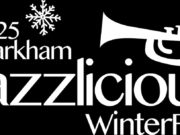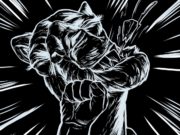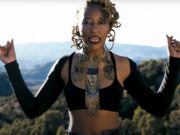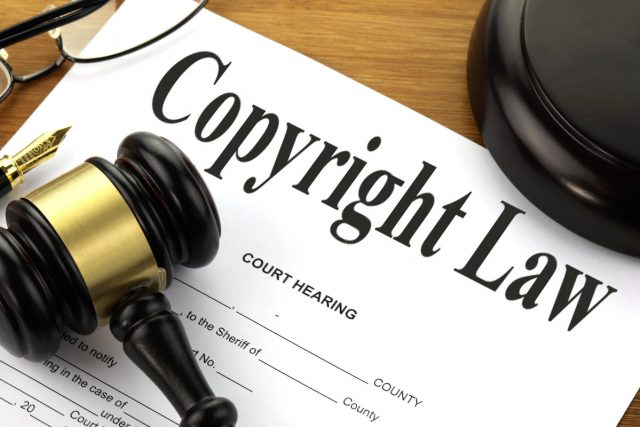 My life-long pal Jordon Zadorozny of Blinker The Star made news late last year. Sadly, it wasn’t for producing and contributing to any of my six Area Resident albums. Rather, it was due to a plagiarism case involving a former collaborator of his — ex-Fleetwood Mac singer, songwriter and guitarist Lindsey Buckingham.
My life-long pal Jordon Zadorozny of Blinker The Star made news late last year. Sadly, it wasn’t for producing and contributing to any of my six Area Resident albums. Rather, it was due to a plagiarism case involving a former collaborator of his — ex-Fleetwood Mac singer, songwriter and guitarist Lindsey Buckingham.
Buckingham has now given retroactive songwriting credit to Zadorozny as well as Brad Laner (Medicine) after “accidentally plagiarizing” their song Mind’s Eye in a tune called Swan Song. Zadorozny told Spin: “It was a strange feeling of déjà vu, but a déjà vu where your hero is singing your song.”
It got me thinking about how often this happens. Turns out, it’s a lot. There are a great many examples in my own record collection alone. Here’s a few choice cuts:
Chuck Berry has a writing credit on Surfin’ USA by The Beach Boys. Writer Brian Wilson set out to create a song which was unabashedly Sweet Little Sixteen with surf lyrics. When it was first released, however, it was credited to only Wilson. By 1966 it was credited to Berry and later versions have it credited to both men. The Beach Boys’ Mike Love contends he helped write the song — something which Brian admits — but he doesn’t have a credit even though he successfully sued in 1994.
The Beatles also borrowed from Berry. In 1973, Berry’s publisher sued because Come Together sounds an awful lot like You Can’t Catch Me. To make things right, John Lennon agreed to record four songs by the same publisher. He only managed one on the Walls And Bridges album, and finally held up his end of the bargain when his album Rock ‘N’ Roll was released in 1975.
The Beatles and its members have had a great many run-ins with the copyright police. The estate of Glenn Miller gets a portion of the royalties from All You Need Is Love due to the fact that a section of In The Mood was written-in and played in the extro. George Martin created the score and believed the music to be public domain. He was partly right — the copyright had expired, but there was still an arrangement in place with EMI, which ultimately had to reach a settlement in the matter.
Paul McCartney elected to pay the legal bills of Nigerian conga player Jimmy Scott-Emuakpor, who claimed the Beatle stole his catchphrase for the title and chorus of 1968’s Ob-La-Di Ob-La-Da.
George Harrison got sued over the single My Sweet Lord, from his first post-Beatles release. He was sued in 1971 by Bright Tunes Music Corp. for ri[pping off He’s So Fine, written by Ronnie Mack and performed by The Chiffons. Harrison contended he — and likely Mack too — drew inspiration from the hymn Oh Happy Day. But, in 1976, the court found that Harrison had subconsciously copied the song. It wasn’t finally settled until the early 1990s. Long story short: It cost Harrison nearly $600,000.
On the other side of the coin, in the late ’70s, the Beatles catalogue was owned by ATV Music. It sued Neil Innes, who was the key person behind the Beatles spoof The Rutles. It was settled out of court for 50% of the royalties of the songs deemed to be direct parodies. Funny story, though — one of Innes’ Rutles demos actually made its way onto a Beatles bootleg in the late 1970s. Whoever made the bootleg thought the Rutles song Cheese And Onions (a parody of Imagine) was written and performed by Lennon. Innes was tickled.
Led Zeppelin are also synonymous with the borrowing of songs. The band’s first trip to court was in 1972 when they were forced to add Sonny Boy Williamson’s name as a songwriter to Bring It On Home from Led Zeppelin II. They also had to give Howlin’ Wolf a writing credit for The Lemon Song from the same album — because it’s basically Killing Floor. Willie Dixon was given credit for Whole Lotta Love, which opens that record. In 1990, American folk singer Anne Bredon was given songwriting credit for Babe I’m Gonna Leave You from the first Led Zeppelin record. There was an out-of-court settlement in 2012 when jingle writer Jake Holmes sued over Dazed And Confused, which was on the first album and the live set The Song Remains The Same.
Zep finally won a case when in 2016 the estate of Randy California sued, claiming 1971’s Stairway To Heaven was a ripoff of Spirit‘s 1968 song Taurus. It was determined the two songs didn’t have enough similarities.
The Doors settled out of court after being accused of ripping off All Day And All of The Night by The Kinks. If you asked me, The Kinks ripped the song themselves when they recorded Destroyer in the 1980s. Same damn riff.
In 1973, Elton John settled out of court after it was determined his hit Crocodile Rock was too similar to Speedy Gonzales by Pat Boone.
Composer Gord Jenkins got $75,000 from Johnny Cash because Folsom Prison Blues’ lyric structure is very similar to his song Crescent City Blues. “But I’m stuck in Crescent City / Just watching life mosey by” is one fine example, but I challenge you to do this: Sing the lyrics of Pinball Wizard over the music of Folsom Prison Blues.
1983 Star Search winner Sam Harris got an undisclosed amount of money from Madonna because Papa Don’t Preach and Sugar Don’t Bite were too similar.
Ray Parker Jr. had one big hit — the Ghostbusters theme — and he quietly settled with Huey Lewis, who claimed it was a rip off of I Want A New Drug.
In 1990, Jeff Lynne of Electric Light Orchestra had to give writing credit to Smokey Robinson, Pete Moore, Bobby Rogers and Marvin Tarplin because the Smokey Robinson & The Miracles song Going To A Go-Go clearly inspired the Lynne solo single Every Little Thing. I’ve always wondered how Lynne got away with ELO’s Mr. Blue Sky, which seems to be exactly the same as the McCartney middle bit of A Day In The Life. Maybe you get away with stuff when you’re in Traveling Wilburys.
John Denver actually has a writing credit on a New Order song! What? Yeah. Denver’s publishing company sued, alleging that the guitar break in Run was a ripoff of Leaving On A Jet Plane. The case was settled out of court and the song is now credited to New Order and John Denver.
One of the nastiest lawsuits involved the Andrew Loog Oldham-orchestrated version of The Last Time by The Rolling Stones. This version — the string refrain — was sampled by The Verve for their hit Bittersweet Symphony. They had gotten permission to use it, but not in such a prominent way. For many years The Verve ended up having to forfeit 100% of all royalties from the song to the Stones. In fact, when the song was nominated for a Grammy, it was Keith Richards and Mick Jagger who were listed as the songwriters.
To make matters worse, because Bittersweet Symphony was so popular, the copyright owner licensed it for use in show and automobile ads. None of the money went to The Verve, whose leader Richard Ashcroft was not at all comfortable with the song used in commercials.
The Stones have been claimants twice, and defendants three times. Oasis have been sued three times. The most notable one led to the Manchester band’s preference for Pepsi. Their 1994 hit Shakermaker — particularly the opening line — was just way too similar to that “I’d like to buy the world a Coke” commercial from 1971. So, The New Seekers and the Gallagher brothers had to reach a settlement.
Last, but certainly not least, is the two-year legal battle which ensued after Marvin Gaye’s family sought damages when it was decided Robin Thicke’s hit Blurred Lines sounded an awful lot like Gaye’s 1977 song Got To Give It Up. They didn’t give up, and were awarded nearly £5 million.
Man, forget getting signed or playlisted — now I just want to get plagiarised.
• • •
Area Resident is an Ottawa-based journalist, recording artist, music collector and re-seller. Hear (and buy) his music on Bandcamp, email him HERE, follow him on Instagram and check him out on Discogs.









































